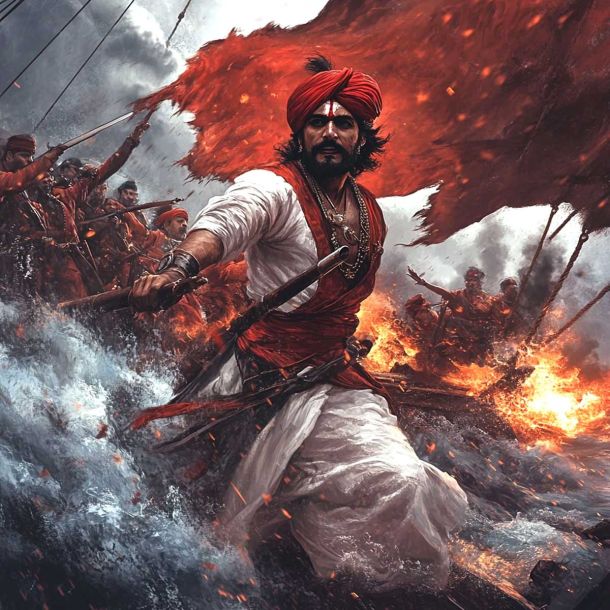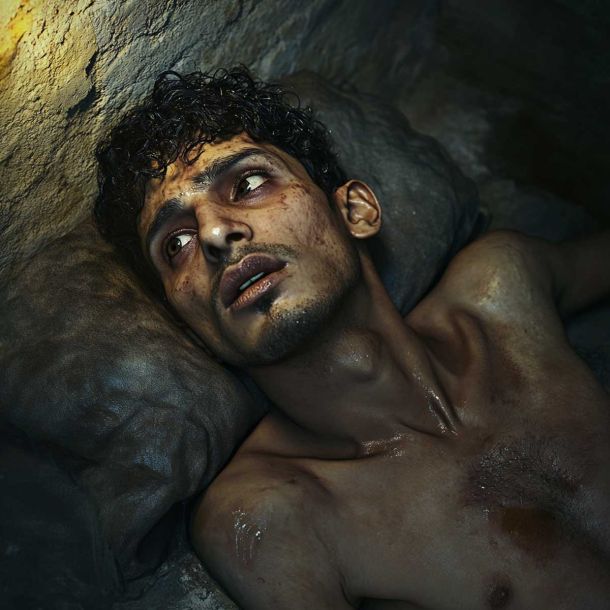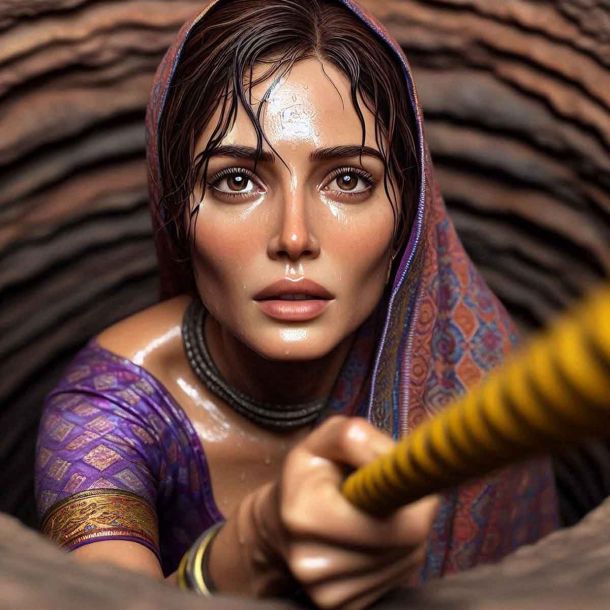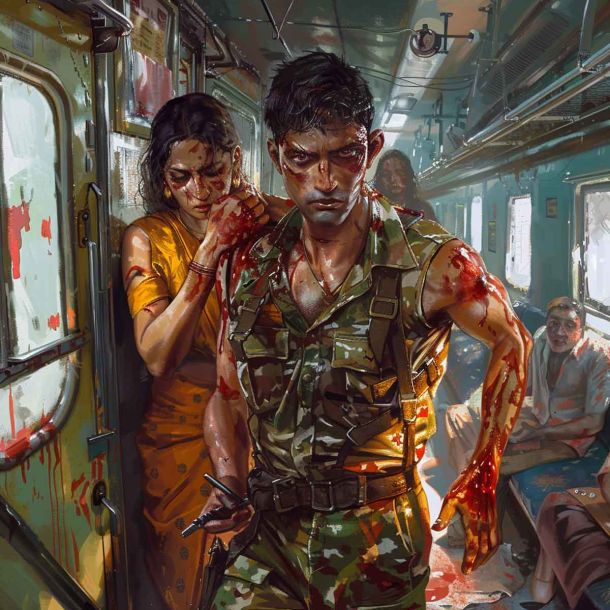MORE COVERAGE
The Residue of Macaulayism - Hindu Society Under Siege
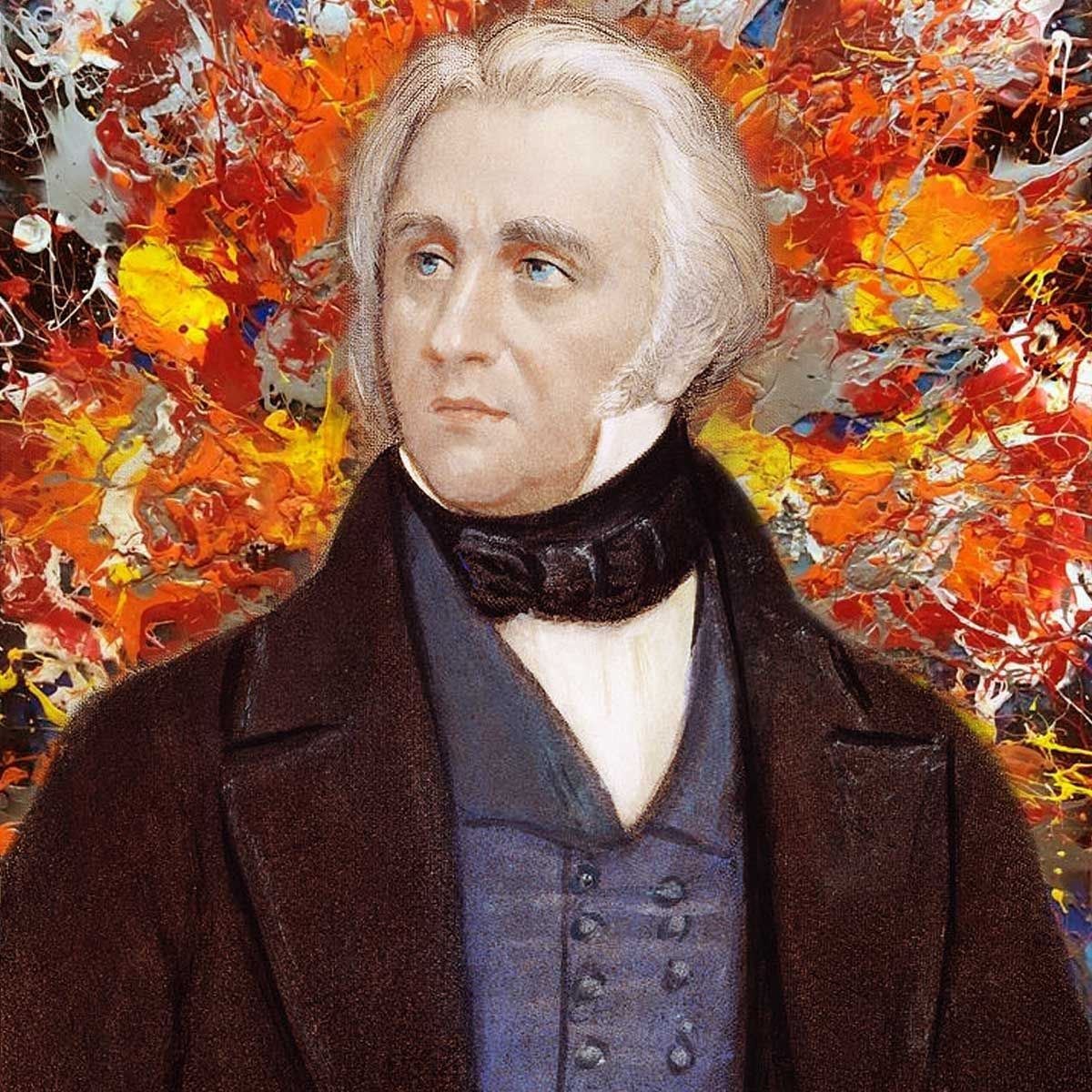
Now for the second residue of British rule, Macaulayism. The term derives from Thomas Babington Macaulay, a member of the Governor General’s Council in the 1830s. Earlier, the British Government of India had completed a survey of the indigenous system of education in the Presidencies of Bengal, Bombay and Madras. A debate was going on whether the indigenous system should be retained or a new system introduced. Macaulay was the chief advocate of a new system. This, he, expected, will produce a class of Indians brown of skin but English in taste and temperament. The expectation has been more than fulfilled.
There is a widespread impression among ‘educated’ classes in India that this country had no worthwhile system of education before the advent of the British. The great universities like those at Takshashilã, Nãlandã, Vikramashîla and Udantapurî had disappeared during Muslim invasions and rule. What remained, we are told, were some pãthashãlãs in which a rudimentary instruction in arithmetic, and reading and writing was imparted by semi-educated teachers, mostly to the children of the upper castes, particularly the Brahmins. But the impression is not supported by known and verifiable facts.
Speaking before a select audience at Chatham House, London, on October 20, 1931, Mahatma Gandhi had said: ‘I say without fear of my figures being successfully challenged that India today is more illiterate than it was before a fifty or hundred years ago, and so is Burma, because the British administrators when they came to India, instead of taking hold of things as they were, began to root them out. They scratched the soil and began to look at the root and left the root like that and the beautiful tree perished.’
What the Mahatma had stated negatively, that is, in terms of illiteracy was documented positively, that is, in terms of literacy by a number of Indian scholars, notably Sri Daulat Ram, in the debate which followed the Mahatma’s statement, with Sir Philip Hartog, an eminent British educationist, on the other side. Now Shri Dharampal who compiled Indian Science and Technology in the Eighteenth Century: Some Contemporary European Accounts in 1971 has completed a book on the state of indigenous education in India on the eve of the British conquest.1
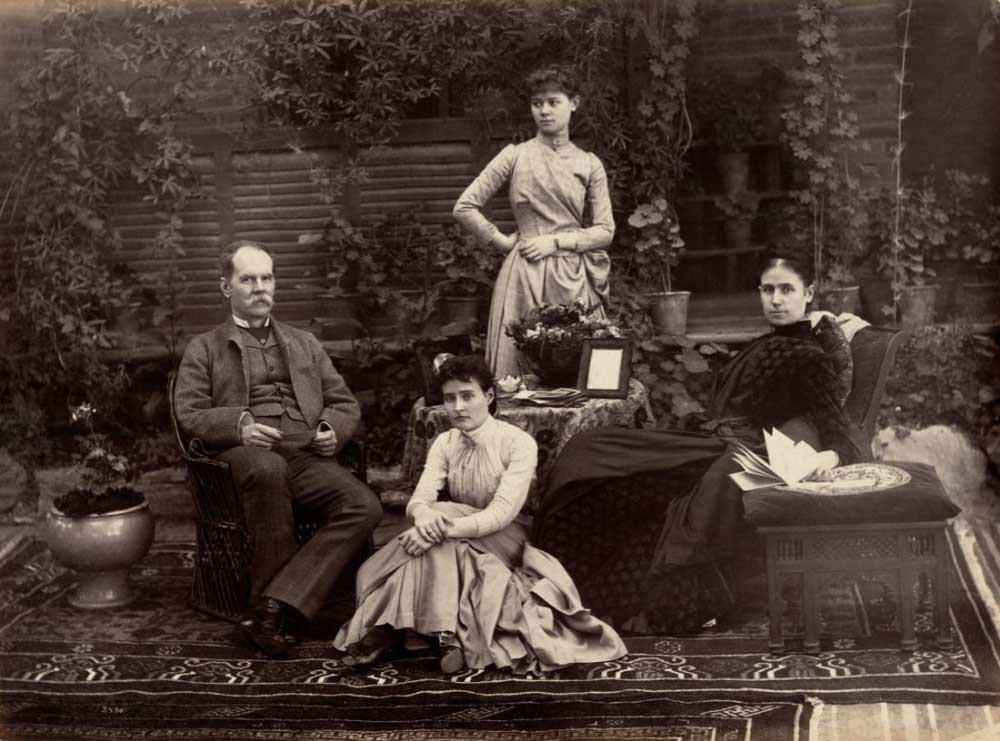 |
Shri Dharampal has documented from old British archives, particularly those in Madras, that the indigenous system of education compared more than favourably with the system obtaining in England at about the same time. The Indian system was admittedly in a state of decay when it was surveyed by the British Collectors in Bengal, Bombay and Madras. Yet, as the data brought up by them proved conclusively, the Indian system was better than the English in terms of:
- the number of schools and colleges proportionately to the population,
- the number of students attending these institutions,
- the duration of time spent in school by the students,
- the quality of teachers,
- the diligence as well as intelligence of the students,
- the financial support needed to see the students through school and college,
- the high percentage of lower class (Sudra and other castes) students attending these schools as compared to the upper class (Brahmin, Kshatriya and Vaisya) students, and
- in terms of subjects taught
This indigenous system was discarded and left to die out by the British not because its educational capacity was inferior but because it was not thought fit for serving the purpose they had in mind. The purpose was, first, to introduce the same system of administration in India as was obtaining in England at that time. The English system was highly centralised, geared towards maximisation of state revenues, manned by ‘gentlemen’ who despised the ‘lower classes’ and were, therefore, ruthless in suppression of any mass discontent. Secondly, the new system of education aimed at promoting and patronising a new Indian upper class who, in turn, would hail the blessings of British Raj and cooperate in securing its stability in India. The indigenous system of education was capable neither of training such administrators nor of raising such a social elite, not at home anywhere.
The system of education introduced by the British performed more or less as Macaulay had anticipated. Hindus like Bankim Chandra Chatterjee, Swami Vivekananda, Lokmanya Tilak, Mahatma Gandhi, Mahamanã Malaviya, Veer Savarkar, Sri M.S. Golwalker, to name only the most notable amongst those who escaped its magic spell and rediscovered their roots, were great souls, strong enough to survive the heavy dose of a deliberate denationalisation. For the rest, it has eminently succeeded in sweeping an ancient and highly cultured people off its feet. Macaulay does deserve the honour of a whole ‘ism’ of which we have not seen the last yet.
It is not easy to define the doctrine of Macaulayism in as authentic terms as we could do in the case of Islamism and Christianism. Doctrinally, Macaulayism is quite diffused. It does not swear by a historical prophet whom it proclaims as the latest as well as the last and the best. It does not bestow a monopoly of truth and wisdom on a single book. It does not lay down a single code of conduct distilled from the doings of a prophet or the sacerdotal tradition of a church.
Nor is Macaulayism malevolent like Islamism or mischievous like Christianism. It is rather mild and well-meaning, more like an imperceptible breeze which blows in silently, fins up the psychological atmosphere, creates a mental mood, inspires an intellectual attitude, and finally settles down as a cultural climate-pervasive, protean and ubiquitous.
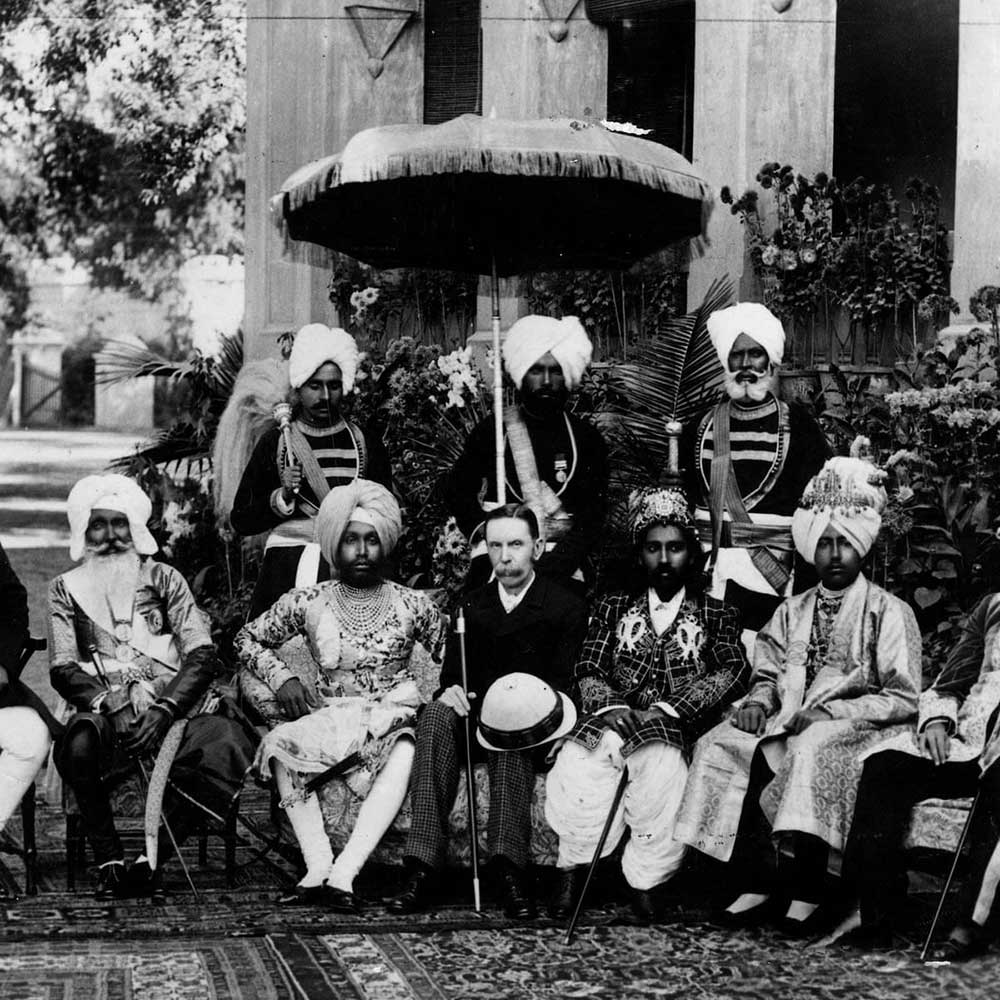 |
Unlike Islamism and Christianism, Macaulayism does not employ any meticulously matured methods to propagate or proliferate itself. It is not out to use a specified section of Indian society as a vehicle of its virulence. It is not a potent potion like Islamism which destroys the body of a culture in one fell sweep. It is not subtle like Christianism which subverts a society surreptitiously. But at the same time, it is a creeping toxaemia which corrodes the soul of a culture and corrupts a social system in slow stages. And its target is every section of Indian society.
Yet, as we survey the spread of its spell over Hindu society, particularly Hindu intelligentsia, we can spot some of its paralysing processes. The most prominent are the following five:
- A sceptical, if not negative, attitude towards Hindu spirituality, cultural creations and social institutions with solemn airs of scholarship and superior knowledge. Nothing in Hindu India, past or present, is to be approved unless recognised and recommended by an appropriate authority in the West;
- A positive, if not worshipful, attitude towards everything in Western society and culture, past as well present, in the name of progress, reason and science. Nothing from the West is to be rejected unless it has first been weighed and found wanting by a Western evaluation;
- An intellectual inclination to compare Hindu ideals and institutions from the past not with their contemporaneous ideals and institutions in the West but with what the West has achieved in its recent history-the 19th and the 20th Centuries;
- A mental mood to judge the West in terms of the ideals and utopias it proclaims from time to time, while judging the Hindus with an all too supercilious reference to what prevails in Hindu society and culture at the present time when the Hindus have hardly emerged from a long period of struggle against foreign invasions;
- A psychological propensity to scrutinise, interpret and evaluate Hindu culture, history, society and spirituality with the help of concepts and tools of analysis evolved by Western scholarship. It is never granted that the Hindus too have well-developed concepts and tools of analysis, derived from their own philosophical foundations, that it would be more profitable to use these concepts and tools of analysis for a proper understanding of the Hindu heritage, and that it is less than fair to employ alien and incompatible methods of evaluation while judging this heritage. If the Hindus use their own concepts and tools of analysis to process and weigh the Western heritage, our Macaulayists always throw up their hands and denounce the exercise as unscientific and irrelevant to the universe of discourse.
The intellectual and cultural fashions and fads of our Macaulayists change as freely and frequently as the intellectual and cultural climate in the West. Now it is English Utilitarianism, now German Idealism, now Russian Nihilism, now French Positivism or Existentialism, now American Consumerism-whatever be the dominant trend in the West, it immediately finds its flock among the educated Hindus. But one thing remains constant. The platform must first be prepared in the West before it could or should find an audience in India.
And this process of approving, rejecting, judging and justifying which Macaulayism promotes among its Hindu protagonists does not remain a mere mental mood or an intellectual inclination or a psychological propensity, that is to say, a subjective stance on men and matters. It inevitably and very soon expresses itself in a whole life-style which goes on rejecting and replacing Hindu mores and manners indiscriminately in favour of those which the West recommends as the latest and the best. The land from which the new styles of life are imported may be England as upto the end of the Second World War or the United States of America as ever since. But it must always be ensured that the land is located somewhere in the Western hemisphere. ‘Phoren’ is always fine.
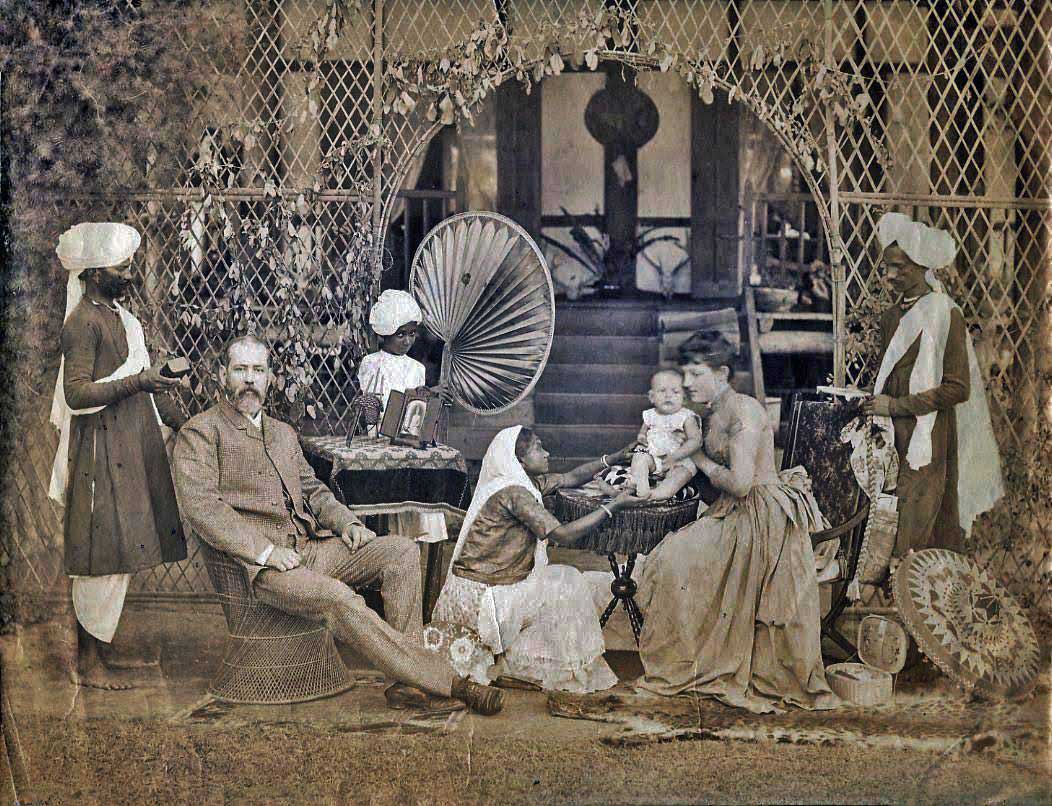 |
The models which are thus imported from the West in ever increasing numbers need not have any relevance to the concrete conditions obtaining in India such as her geography, climate, economic resources, technological talent, administrative ability, etc. If the imported model fails to flourish on the Indian soil and in India’s socio-economico-cultural conditions, these must be beaten and forced into as much of a receptive shape as possible, if need be by a ruthless use of state power. But if the receptacle remains imperfect even after all these efforts, let the finished product reflect that imperfection. A model imported from the West and implanted on Indian soil even in half or a quarter is always preferable to any indigenous design evolved in keeping with native needs and adapted to local conditions.
Starting from the secular and socialist state and planned economy, travelling through a casteless society and scientific culture, and arriving at day-to-day consumption in Hindu homes, we witness the same servile scenario unfolding itself in an endless endeavour. Our parliamentary institutions, our public and private enterprises, our infrastructure of power and transport, our medicine, public health and housing, our education and entertainment, our dress, food, furniture, crockery, table manners, even the way we gesticulate, grin and smile have to be carbon copies of what they are currently doing in the West.
Drain-pipes, bell-bottoms, long hair, drooping moustaches; girls dressed up in jeans; parents being addressed as mom and pa and mummy and daddy; demand for convent schooling in matrimonial ads: and natives speaking their mother tongues in affected accents after the English civilian who was helpless to do otherwise-these are perhaps small and insignificant details which would not have mattered if the Hindus had retained pride in the more substantial segments of their cultural heritage. But in the current context of kowtowing before the West, they are painful portents of a whole culture being forced to feel inferior and go down the drain.
The Hindu may sometimes need to feel some pride in his ancestral heritage, particularly when he wants to overcome his sense of inferiority in the presence of visitors from the West. Macaulayism will gladly permit him that privilege, provided Kãlidãsa is admired as the Shakespeare of India and Samudragupta certified as India’s Napoleon. The Hindu is permitted to take pride in that piece of native literature which some Western critic has lauded. Of course, the Hindu should read it in its English translation. He is also permitted to praise those specimens of Hindu architecture, sculpture, painting, music, dance and drama which some connoisseurs from the West have patronised, preferable in an exhibition or performance before a Western audience. But he is not permitted to do this praising and pride-taking in a native language nor in an English which does not have the accepted accent.
The Hindu who is thus addicted to Macaulayism lives in a world of his own which has hardly any contact with the traditional Hindu society. He looks forward to the day when India will become a society like societies in the West where the rate of growth, the gross national product and the standard of living are the only criteria of progress. He is tolerant towards religion to the extent that it remains a matter of private indulgence and does not interfere with the smooth unfoldment of the socio-political scene. Personally for him, religion is irrelevant, though some of its rituals and festivities can occasionally add some colour to life. For the rest, religion is so much obscurantism, primitive superstition and, in the Indian context at present, a creator of communal riots.
It should not, therefore, be surprising if this self-forgetful, self-alienated Hindu who often suffers from an incurable anti-Hindu animus a la Nirad Chaudhry, turns his back upon Hindu society and culture and becomes indifferent to their fate. He cannot help having not much patience with the traditional Hindu who is still attached to his spiritual tradition, who flocks to hallowed places of pilgrimage, who celebrates his festivals with solemnity, who regulates his daily life with rituals and sacraments, and who honours his forefathers, particularly the old saints, sages and heroes. He also cannot help being indulgent towards those who are hostile to the traditional Hindu and who heap contempt and ridicule on him, no matter to what community or faith they belong, though he may not share their own variety of religious or ideological fanaticism.
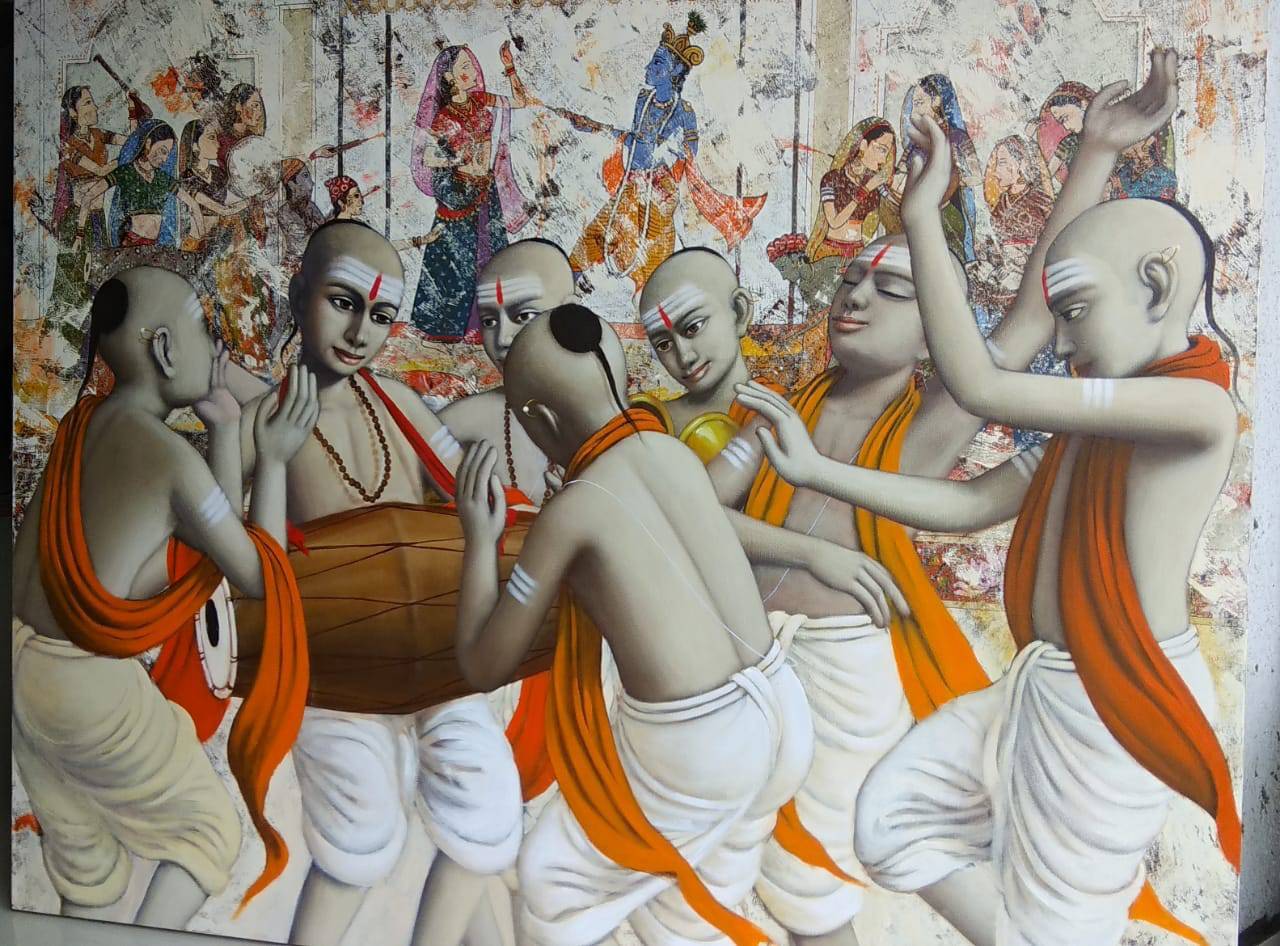 |
The traditional Hindu, on the other hand, wants to live in peace and amity with all his compatriots. He is normally very tolerant towards his Muslim and Christian countrymen, and gladly grants them the right to their own way of worship. He goes further and quite often upholds Muslim and Christian religions as good as his own. He shows all due respect to Muslim and Christian prophets, scriptures and saints. He does not try to prevent anyone from freely discussing, dissecting, even ridiculing his religion and culture. He never mobilises murderous mobs against those Hindus who do not share his convictions about his ancestral heritage. He turns a blind eye to his Gods and Goddesses being turned into cheap models in calendars and commercial advertisements. Nor does he go out converting people of other faiths to his own.
The traditional Hindu, however, does get stirred when the Muslims and Christians cross the limits and threaten the unity and integrity of his country. He does want to retain his majority in his only homeland against Muslim and Christian attempts to reduce him to a minority by fraudulent mass conversions. He does believe that Hindu society and culture have a right to survive and put up some defence in exercise of that right. But the Hindu addict of Macaulayism stubbornly refuses to concede that right to Hindu society and culture. He cannot see the need for defence because he cannot see the danger. And he has many strings to his bow to run down the Hindu who dares defy his diktat. His attitude can by summarised as follows:
- To start with, he refuses to recognise any danger to Hindu society and culture even when irrefutable facts are placed under his nose. He accuses and denounces as alarmists, communalists, chauvinists and fascists all those who give a call for self-defence to the Hindus. Better, he explains away the aggression from other faiths in terms of the aggression which ‘Hindu communalism’ has committed in the first instance;
- Next, he paints a pitiful picture of the aggressor as a poor, deprived and down-trodden minority whom the Hindus refuse to recognise as equal citizens, constitutionally entitled to a just share in the national cake;
- At a later stage, he assumes sanctimonious airs and assigns to the Hindus an inescapable moral responsibility to rescue their less privileged brethren from the plight into which the Hindus have pressed them. In any case, the Hindus stand to lose nothing substantial if they make some generous gestures to their younger brethren even if the latter are slightly in the wrong;
- In the next round, he harangues the Hindus that any danger to them, if really real and worth worrying about, arises not from an external aggression against them but from the injustice and oppression in their own social system which drives away its less privileged sections towards other social systems based on better premises and promises. Does not Islam promise an equality of social status because of its great ideal of the brotherhood of men? Does not Christianity present an example of dedicated social service a la Mother Teresa?
- If the Hindus are not convinced by all these arguments and become bent upon organising some sort of a self-defence, he comes out with a fool-proof formula for that eventuality as well. The Hindus are advised to put their own house in order which, in his opinion, is the best defence they can put up. They should immediately abolish the caste system, start inter-dining and inter-marrying between the upper and lower castes, particularly the Harijans, and so on and so forth. It never occurs to him that social reform is a slow process which takes time to mature and that in the meanwhile a society is entitled to self-defence in the interests of its sheer survival;
- If the Hindus still remain adamant, he tries his last and best ballistics upon them. He suddenly puts on a spiritual mask and lovingly appeals to the Hindus in the name of their long tradition of religious tolerance. How can the followers of Gautama and Gandhi descend to the same level as Islam and Christianity which have never known religious tolerance? The Hindus would cease to be Hindus if they also start behaving like followers of the Semitic faiths which have been conditioned differently due to historical circumstances of their birth. But he never dares put in one single word of advice to the followers of Islamism and Christianism to desist from always having it their own way. He knows it in his bones that such an advice will immediately bring upon his head the same abusive accusations which Islamism and Christianism hurl at the Hindus. This is the outcome which he dreads worse than death. He cannot risk his reputation of being secular and progressive which Islamism and Christianism confer upon him only so long as he defends their tirades against the Hindus.
But the stance which suits Macaulayism best is to sit on the fences and call a plague on both houses. The search for fairness and justice is somehow always too strenuous for a follower of Macaulayism. The one thing he loathes from the bottom of his heart is taking sides in a dispute, even if he is privately convinced as to who is the aggressor and who the victim of aggression. He views the battle as a disinterested outsider and finds it somewhat entertaining. The reports and reviews which some of our eminent journalists have filed in the daily and the periodical press about happenings in Meenakshipuram and other places where Islamism is again on the prowl, leaves an unmistakable impression that these gentlemen are not members of Hindu society but visitors from some outer space on a temporary sojourn to witness a breed of lesser beings fighting about Tweedledum and Tweedledee.
An adherent of Macaulayism can well afford to take this neutral, even hostile stance, away from and above Hindu society, its problems and its struggles, because, in the last analysis, he no more regards Hindu society as his own or as his indispensable benefactor. He has already managed to monopolise most of the political and administrative power in this country and the best jobs in business and the professions. He has secured a stranglehold on the most prestigious publicity media. The political upstarts and the neo-rich look up to him as their paragon and try to mould their sons and daughters in his image.
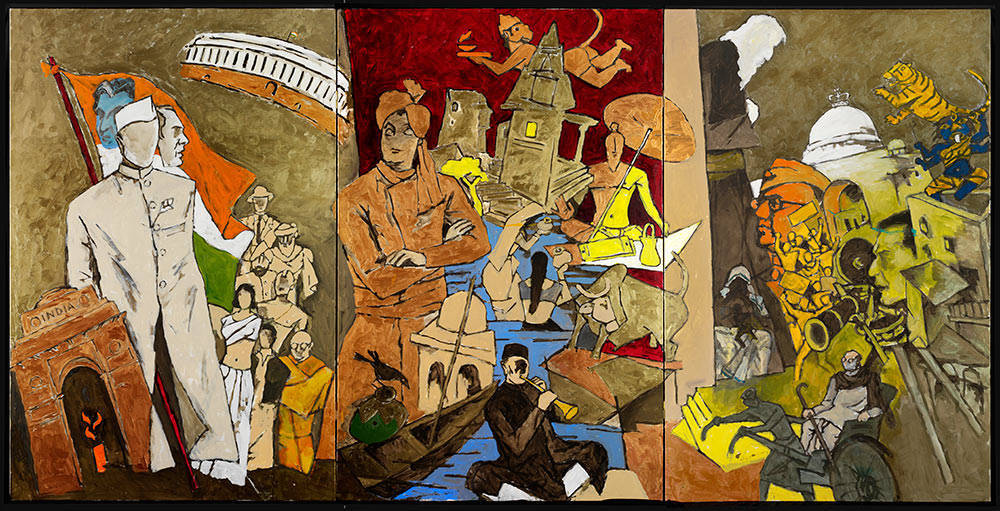 |
But what is uppermost in his mind, if not his conscious calculation, is the plenty of patrons, protectors and pay-masters he has in the West, particularly the United States of America. The scholars and social scientists over there in the progressive West approve and applaud whenever he pontificates about India’s socio-economico-cultural malaise and prescribes the proper occidental cures. They invite him to international seminars and on well-paid lecture tours to enlighten Western audiences about the true state of things in this ‘unfortunate’ country and the rest of the ‘under- developed’ world. He can travel extensively in the West with all expenses paid on a lavish scale. Even in this country he alone is entitled to move and establish the right contacts in social circles frequented by the powerful and the prestigious from the West.
And, God forbid, if the worst comes to the worst and the ‘fanatics like the RSS fascists’ or the Muslim fundamentalists or the Communist totalitarians take over this country, he can always find a safe refuge in one Western country or the other. There are plenty of places which can use his talents to mutual profit. The salaries they pay and the expense accounts they allow are quite attractive. The level of living with all those latest gadgets is simply lovable. In any case, he has all those sons and daughters, nephews and nieces, cousins and close relatives ensconsed in all those cushy jobs over there-the UN agencies, the fabulous foundations, the business corporations, the universities and research institutions.
So, Hindu society with all its hullabaloo of religion and culture be damned. This society, and not he, stands to lose if he is not permitted to work out his plans for progress in peace. In any case, this society cannot pay even for his shoes getting polished properly.
- Part 1 - Significance of Hindu Society - Hindu Society Under Siege
- Part 2 - The Residue of Islamism - Hindu Society Under Siege
- Part 3 - The Residue of Christianism - Hindu Society Under Siege
- Part 5 - The Communist Conspiracy - Hindu Society Under Siege
- Part 6 - The United Front of Hostile Forces - Hindu Society Under Siege
Footnotes:
1. Since published as The Beautiful Tree, New Delhi, 1983.
References:
voiceofdharma.org - Hindu Society Under Siege - Sita Ram Goel - Voice of India, New Delhi
 Support Us
Support Us
Satyagraha was born from the heart of our land, with an undying aim to unveil the true essence of Bharat. It seeks to illuminate the hidden tales of our valiant freedom fighters and the rich chronicles that haven't yet sung their complete melody in the mainstream.
While platforms like NDTV and 'The Wire' effortlessly garner funds under the banner of safeguarding democracy, we at Satyagraha walk a different path. Our strength and resonance come from you. In this journey to weave a stronger Bharat, every little contribution amplifies our voice. Let's come together, contribute as you can, and champion the true spirit of our nation.
 |  |  |
| ICICI Bank of Satyaagrah | Razorpay Bank of Satyaagrah | PayPal Bank of Satyaagrah - For International Payments |
If all above doesn't work, then try the LINK below:
Please share the article on other platforms
DISCLAIMER: The author is solely responsible for the views expressed in this article. The author carries the responsibility for citing and/or licensing of images utilized within the text. The website also frequently uses non-commercial images for representational purposes only in line with the article. We are not responsible for the authenticity of such images. If some images have a copyright issue, we request the person/entity to contact us at This email address is being protected from spambots. You need JavaScript enabled to view it. and we will take the necessary actions to resolve the issue.
Related Articles
- ‘Kanyādāna’ in an Age of lunacy and trending social media campaigns: To Give or Not to Give
- Yes, Secular India’s shift towards ‘Majoritarianism’ is very much real: So, just deal with it
- Our first true war of independence lie forgotten within the fog of time and tomes of propaganda: Sanyasi Rebellion, when "renouncers of the material world" lead peasants in revolt against British and fundamentalist islamic clans
- A new symbol of Hindutva pride, Shri Kashi Vishwanath Temple Corridor
- History books should teach India’s civilisational, linguistic heritage, not unfounded claims: Parliamentary Committee meets to discuss NCERT books
- An Artisan Heritage Crafts Village: Indigenous Sustainability of Raghurajpur
- Madras High Court: Do not take decision on melting Temple gold till Trustees are appointed
- A Different 9/11: How Vivekananda Won Americans’ Hearts and Minds
- Hindus documented massacres for 1000s of years: Incomplete but indicative History of Attacks on India from 636 AD
- Dangers of losing our identity: Guru Tegh Bahadur forgotten and Aurangzeb being glorified
- The Spiritual Centre of Hindu Society - Defence of Hindu Society
- Why India’s temples must be freed from government control
- Father of the Nation! Absolutely not. Mohandas Karamchand Gandhi was not the father of the nation either officially or otherwise
- Freedom struggle of Gurjars against Britishers at Koonja in 1824: 100s of Gurjars Martyred and 100s Hung in Single Tree
- Kartar Singh Sarabha - The Freedom fighter who was Hanged at the age of 19 and inspired Bhagat Singh
Related Articles
Twitter Coverage
Satyaagrah
Written on
Satyaagrah
Written on
Satyaagrah
Written on
Satyaagrah
Written on
Satyaagrah
Written on
